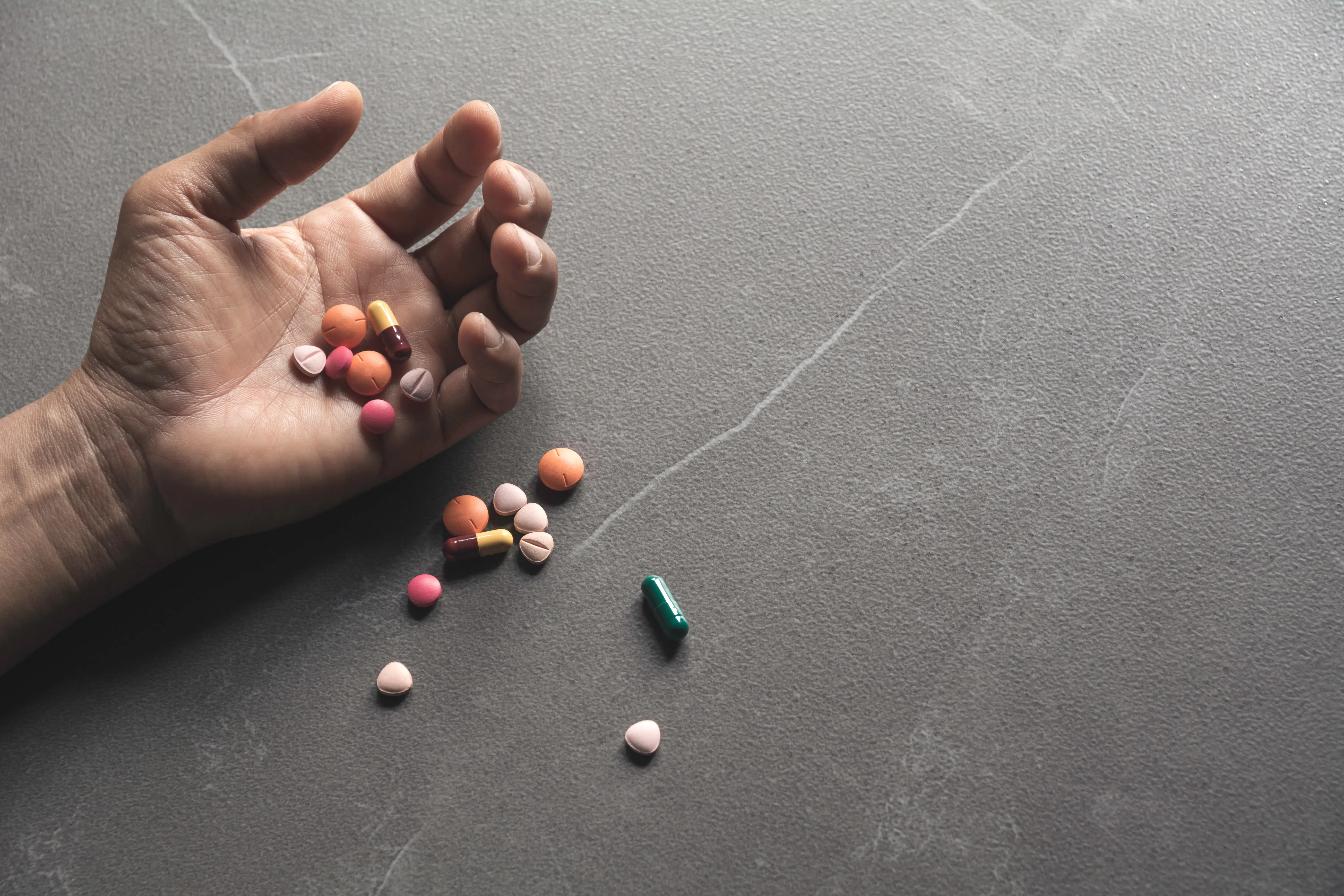
The formation of a drug dependence happens over time when an individual consumes a specific drug repeatedly. There are 6 types of drug dependence based on the type of substance being abused. These are alcohol, cannabis, hallucinogens, cocaine, opioids, and sedatives. Drug use leading to dependence can originate from both legal and illegal substances. Prescription painkillers are common sources for drug dependence even when used as directed. Alcohol and, in some states, marijuana are two addictive substances that are legal to purchase and consume even knowing they can create a dependence.
Exploring the Six Types of Drug Dependence
Drug dependence refers to the scenario in which a person is unable to end their substance use without adverse side effects known as withdrawal symptoms. Dependence describes the physical effects of lowering or stopping drug use while substance use disorder, or addiction, refers to the long-term impacts to a person’s health, relationships and social standing. To better understand drug dependence, the topic has been broken down into six types.
Alcohol
Alcohol is the most abused drug in the world and negatively impacts how the brain and body function. A person may choose to drink to feel the depressant effects of alcohol which slow down the central nervous system and reduce the number of anxious or stressful thoughts produced. It’s common to use alcohol as a form of self-medication for other mental illnesses as well. When dependence is broken, individuals can experience extreme mood swings, tremors, and even hallucinations.
Opioids
Having an entire epidemic named after a drug shows just how dependent those who use opioids become on the drug. Prescription painkillers such as oxycodone block pain signals sent by the brain to create a state of euphoria. The feeling is highly addictive and leads individuals to seek out illegal opioids if they became addicted during a now expired prescription.
Sedatives
This type also includes hypnotics known as barbiturates while sedatives are referred to as benzodiazepines. Hypnotics are used for sleep disorders as they reduce brain activity in the user. Sedatives, or benzos, interact with different neurotransmitters to achieve similar effects but with different means. Both hypnotics and sedatives are addictive and can lead to overdose as tolerance builds.
Cannabis
The active ingredient in marijuana is tetrahydrocannabinol, or THC. The THC interacts with the brain to create a feeling of euphoria while limiting other functions such as decision making and conversational skills. Cannabis products are one of the most abused substances worldwide but also come with some of the lowest risks of developing a dependence.
Hallucinogens
LSD, DMT and psilocybin are hallucinogens used recreationally in order to alter an individual’s perception of reality. Due to changing perception, users often experience sensations and visions that aren’t real but may expose them to new ways of thinking. While these drugs have a lower risk of overdose and addiction compared to others, they pose a higher risk for long-term psychological effects if used in excess.
Cocaine
Other stimulants such as methamphetamine can be considered under this category. Stimulants such as cocaine can be ingested multiple ways and trigger the brain’s pleasure transmitters that tend to be used to reward us. Cocaine use decreases the natural activity of these transmitters leading to a total loss of pleasure once usage stops due to the dependence. The strong effects and ease of use make cocaine easy to overdose on.
What To Do About Drug Dependence
Breaking drug dependence can be dangerous to do alone. Severe cases of drug abuse over a long period of time can lead the user to be fully dependent on a substance in order to function in any capacity. The first step to take is to stop showing heavy drug and alcohol use as a sign of success or fun. Reducing the amount of social pressure an individual feels to do drugs or drink helps both adults and children avoid first time use.
Tackling drug addiction and dependence when it’s already present takes a team of medical professionals and a compassionate staff. America’s Rehab Campus provides this and more to every guest. Our campus has luxury resort style housing and recreation options while keeping prices affordable. We also work with major insurance providers both private and public to make treatment as accessible as possible.
Ready to get started? Reach out to our team online and schedule your free consultation today!

